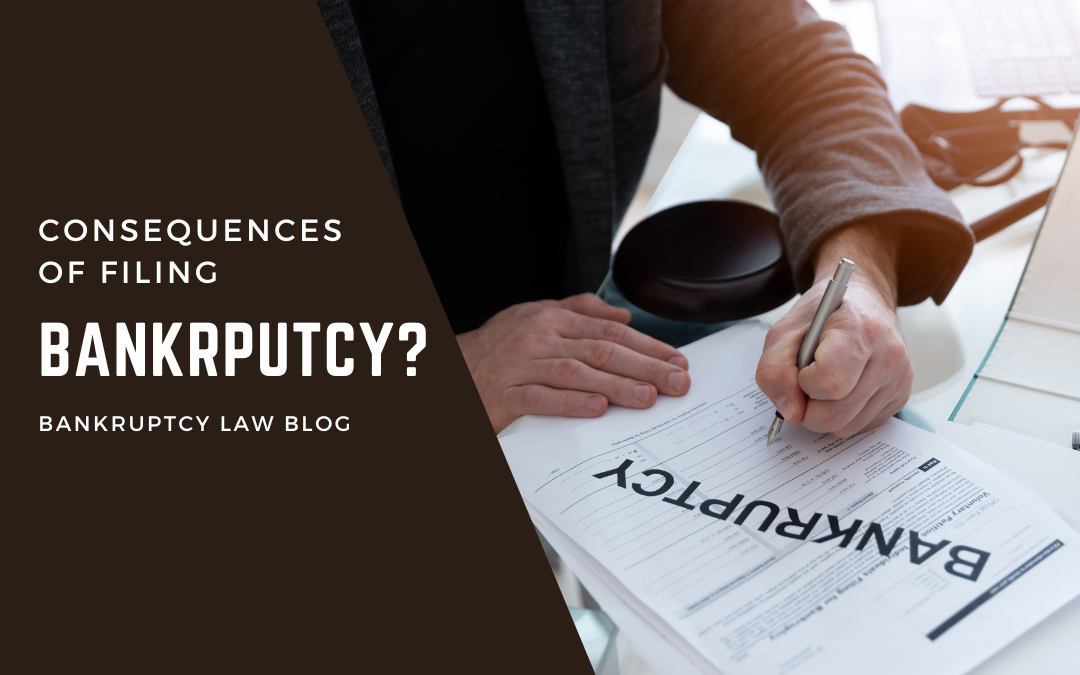Bankruptcy can help you discharge overwhelming debt, but it also impacts your credit, job, and personal relationships.
Getting a mortgage after bankruptcy
A bankruptcy shows on a credit report for 7 to 10 years from the date filed, depending on the type of bankruptcy. In the vast majority of cases to even be eligible for a mortgage, you have to wait a minimum of years. And even if you are eligible, it can be extremely difficult to obtain a mortgage from a lender.
Getting a credit card after bankruptcy
Similar to obtaining a mortgage, you may find it hard to get a credit card after bankruptcy since the bankruptcy will show on your credit report.
Lenders may be unwilling to provide you credit or may only offer options with high-interest rates or unfavorable terms.
Getting a car after bankruptcy
You may need to get a car before a bankruptcy falls off your credit report. Fortunately, it is possible to get a car, but it is not simple. For instance, auto loan lenders are likely to only offer you loans with higher interest rates or less favorable terms due to your bankruptcy.
If you know you’re going to need a car after bankruptcy, you’ll want to wait to buy for as long as possible. Use that time to rebuild your credit so you can get more favorable terms on a loan. Additionally, you can set aside more money for the car so you can make a bigger down payment or pay for it with cash.
Getting hired after bankruptcy
Employers often check applicants’ credit as part of the hiring process, especially if the job involves a security clearance, finance, accounting, or handling valuable merchandise.
A government employer can’t deny you a job solely due to past bankruptcy, but it may be a factor they consider. Private employers, however, could decide not to hire you based on a previous bankruptcy filing.
One additional scenario to consider is if you hold a professional license. You may be required to report it to the licensing board or risk losing your license, potentially impacting future jobs.
Bankruptcy’s impact on your marriage
If you’re married, you or your spouse can file for bankruptcy, or you can file jointly. However, all of these situations can impact your significant other, so it’s important to understand the consequences before one or both of you file.
If you or your spouse files but the other doesn’t, only the debts of the person who filed will be discharged. So the non-filing spouse will still owe on any jointly held debts. But only the filing spouse’s credit report will show a bankruptcy filing.
Additionally, any assets held solely by the non-filing spouse can not be used in the filing spouse’s bankruptcy. So it’s important to consider how assets are held before deciding.
Lastly, you can file jointly, creating one case filed under both parties’ names.
Bankruptcy’s impact on child support payments
Bankruptcy does not discharge past child support owed or modify future payments. However, since it’s a “priority debt,” it will get paid first by any available money.
Regardless of the type of bankruptcy filed, you will be responsible for any remaining child support balance and future payments even after you receive a discharge.
However, bankruptcy can still help you meet child support obligations since you may not have payments to make to other creditors, so you can use that money towards child support. Or, if you’ve filed a Chapter 13 bankruptcy, the repayment plan will help reorganize all debts so you meet your child support obligations.
Bankruptcy’s impact on your taxes
You’re still required to file your income taxes even if you’ve filed bankruptcy. Additionally, as discussed earlier, most tax debt can’t be discharged through bankruptcy. So if you owe taxes, it’s unlikely to be erased.
If you get a tax refund the year that you file for your bankruptcy, your tax refund is often considered an asset and can be used to pay creditors.
Bankruptcy’s impact on your retirement / 401k
Most of the time, your retirement or 401k plan is protected during bankruptcy by the Employee Retirement Income Security Act (ERISA). This act prevents trustees from selling your savings to pay off debt, as in a Chapter 7 bankruptcy. However, you’ll want to check that your retirement plan qualifies.
There are some circumstances where the protections don’t apply. For example, if you transfer funds from your 401k to a non-exempt account, that money may be at risk.

